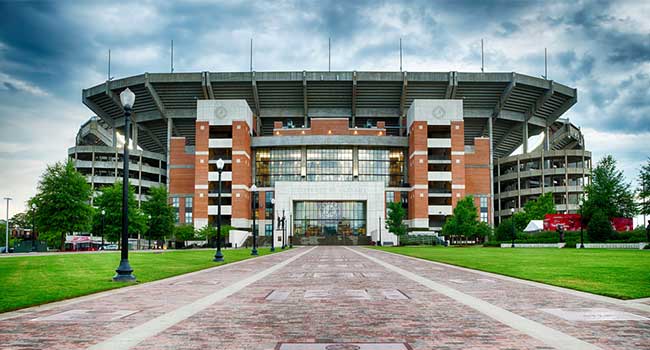
University of Alabama to Introduce Metal Detectors to Football Stadium
The Crimson Tide will be introducing metal detecors to football games starting in the fall.
- By Sydny Shepard
- July 18, 2018
The University of Alabama is staying ahead of the game when it comes to securing their football stadium.
The university is introducing "TSA style" security at Bryant-Denny Stadium for the upcoming football season. On Monday, Alabama announced that they would follow suit of many stadiums and sporting venues around the country with the addition of metal detectors.
The Crimson Tide already have a clear bag policy in place along with a list of banned items such as weapons, artificial noisemakers and umbrellas.
"It goes without saying that safety at our venues is of the utmost importance, and these security enhancements will help to ensure that out fans, student-athletes, coaches and personnel can enjoy their game-day experience in a safe environment," Athletic Director Greg Byrne said in a statement.
The new security operation will look similar to TSA screening at the airport with fans removing metal items before going through a detector and getting them back on the other side. Anyone found with an item not allowed inside will be asked to throw the item away or take it back to their car.
The SEC announced in June that all stadiums in the sports league must have metal detectors in place at sporting venues by 2020.
About the Author
Sydny Shepard is the Executive Editor of Campus Security & Life Safety.